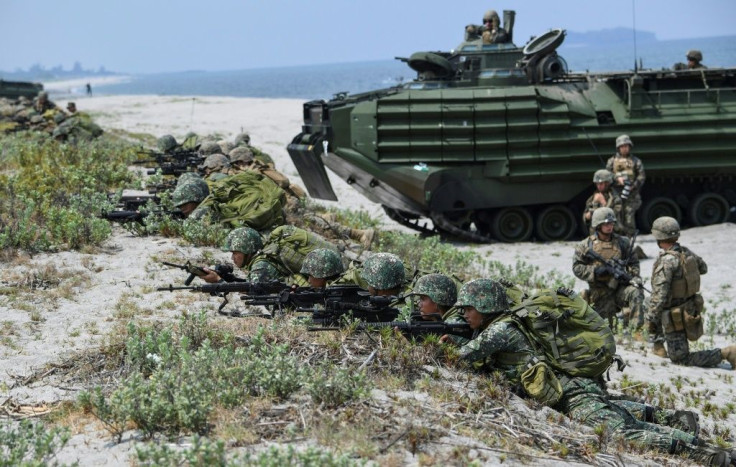South China Sea Conflict Forces Philippines To Meet With US, Discuss Forces Agreement
KEY POINTS
- Philippine officials are expected to meet with US officials to discuss the VFA
- The 1998 agreement allows American troops to conduct military drills in the country
- The VFA supports the 1951 Mutual Defense Treaty
The Philippines and the United States are scheduled to meet this month to discuss a forces agreement amid the recent conflict in the South China Sea.
Officials from the Philippines are set to meet with the U.S. later this month to discuss the future of a 23-year-old Visiting Forces Agreement (VFA), a pact that gives American troops access to Philippine military bases.
In November, Manila decided to suspend the termination of the VFA to allow the Philippine government to work with the U.S. on a defense pact.
"I'm narrowing down the issues and soon we will meet, I believe in the last week of February, and iron out whatever differences we have and come to an agreement," Foreign Affairs Secretary Teodoro Locsin said Monday.
"What that agreement is, of course, I do not wish to anticipate because then that would weaken my decision," he added.
The 1998 Visiting Forces Agreement allows American troops to enter the Philippines on a rotational basis to conduct annual military drills. The agreement also includes a set of rules for the importation and exportation of U.S. equipment and the movement of American aircraft and vehicles inside the Philippine territory.
The VFA, which was established in support of the 1951 Mutual Defense Treaty (MDT), also defines the rights of the Philippine and American governments on jurisdiction over U.S. service members involved in criminal cases while being present in the country.
The MDT states that the United States will provide support to the Philippines in case of foreign attack, and vice versa.
The announcement of the meeting came after Manila filed a diplomatic protest over a new Chinese law that allows its Coast Guard to open fire on any foreign vessels or structures found in Chinese-claimed reefs.
Locsin labeled the new law a “virtual declaration of war” and said failing to challenge it would be submission.
“After reflection, I fired a diplomatic protest,” Locsin wrote on Twitter. “While enacting law is a sovereign prerogative, this one — given the area involved or for that matter the open South China Sea — is a verbal threat of war to any country that defies the law; which, if unchallenged, is submission to it.”

© Copyright IBTimes 2025. All rights reserved.






















